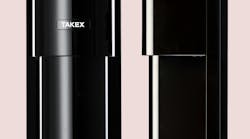According to new report from Cleveland-based research firm The Freedonia Group, global demand for private contract security services is expected to increase by more than 7 percent a year to $244 billion in 2016.
Among the private contract security market segments covered in the "World Security Services" report include alarm monitoring, security systems integration, guard services, armored transport, security consulting, privately managed prisons, and private investigations. Contract guard services make up the majority of the market and will account for more than half of all total revenues in 2016.
The report says that global demand is being driven by several factors: Increasing urbanization; real and perceived risks of terrorism and crime; a belief that public safety measures are insufficient; and, growth of a middle class with resources to pay for these security measures. While commercial and industrial facilities will continue to be the largest market for private security services, the report said that the strongest gains will be posted in the smaller residential construction sector bolstered largely by growth in alarm monitoring.
According to David Petina, an industry analyst with The Freedonia Group, alarm monitoring is expected to grow the fastest among these different market segments. He also believes that guard services are poised to do well as more people begin to have trust in third party providers, which has hampered the market’s growth in some parts of the world.
"In a lot of countries, it’s that move from proprietary guards to contracted services where there are better licensing laws, better training has come into place and there is a greater trust of the private security industry," he explained. "It becomes something greater than a protection racket for the military/police forces kind of muscling in and saying 'ok, were going to get a little extra revenue here on the side' and it becomes a more professional service. Players within the industry are pushing for that, as well as some of the western companies that are moving into these areas and some of the local companies that are saying ‘we’ve just got to do something better than this.'"
In addition, the U.S. is expected to remain as the largest consumer of security services, accounting for 26 percent of world demand in 2016 and for one-fifth of total global increases between 2011 and 2016.Brazil is expected to see above average increases and represent seven percent of global growth through 2016, while India and China will account for about 13 percent. The strongest growth is expected in developing parts of Asia, Eastern Europe, Africa, and the Middle East.
Despite recent calls for guards, as well as other security measures in schools in the wake of the Sandy Hook Elementary School massacre, Petina doesn’t expect this will have a large impact on the market.
"With the security industry, it’s always sort of accordion-like. You will have an incident, whether it is 9/11, the Mumbai terror attacks or Sandy Hook, and there will be an initial reaction or a lot of rhetorical noise about it," Petina said. "How that actually plays in is often muted significantly. In the case of Sandy Hook, a lot of schools already have their budgets for the year and a lot of states and municipalities don’t have the funds. They are already running under tight budgets."
Rather than investing in guards and new security systems, Petina believes that schools will look at things to improve training for their staffs. "There will probably be more of an effort in things like that rather than putting armed guards in every school just because it is so cost prohibitive," he said. "If you’re in a district or area that feels they already need guards, they probably have them."
That’s not to say, however, that there won’t be spending on these such as interior door locks, which Petina believes will be more likely.


